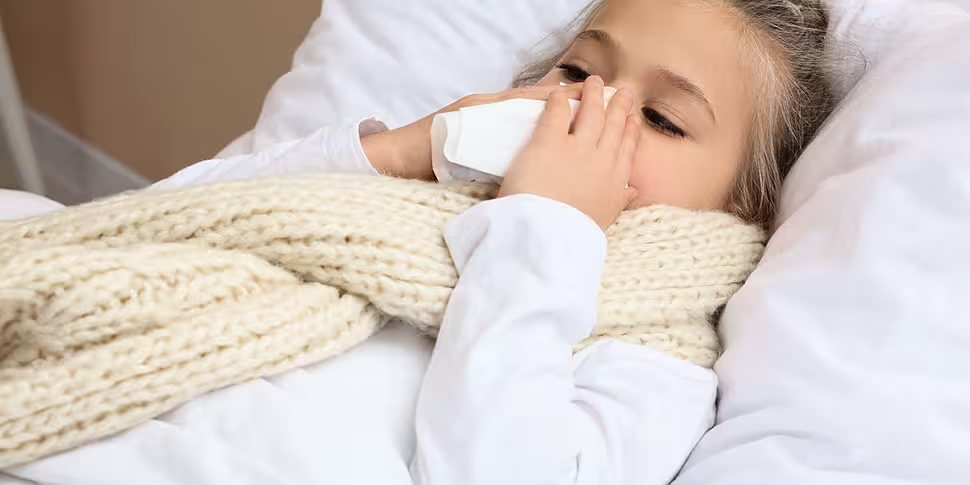What are the symptoms of RSV and how can a parent try and prevent their child from catching it?
According to a survey run by Together Against RSV found that nearly two-thirds, 63%, of Irish parents are concerned their child may catch the RSV virus this winter.
The respiratory syncytial virus is a common virus and most people who catch it recover quickly without the need for medical treatment.
Babies are particularly at risk of developing severe symptoms - as are the elderly and people with underlying medical conditions.
“Somewhere in the region of about one or two babies in 100… who are under the age of six months will need to be admitted with an illness caused by RSV,” GP Dr Scott Walkin told Newstalk Breakfast.
“But thankfully, for most of us, it’s much milder than that.”
Mild symptoms of RSV include a runny nose, coughing or sneezing but Dr Walkin urged parents to make themselves aware of the more severe symptoms that mean a child needs medical treatment.
“There’s a really good resource available which describes the symptoms… which is called MyChild.ie,” he said.
“That’s a HSE website and on that will be included a list of the severe symptoms such as breathing trouble, a child that can’t catch his or her breath, blue lips is a very severe symptom.
“Any child that hasn’t had a wet nappy in the last 12 hours or thereabouts, that’s a sign of a more severe illness.
“Or indeed, children that are very drowsy, cross or irritable.”
Dr Walkin said parents know their child better than anyone and medics consider parental concern to be a “reliable sign” of illness.
Prevention
Dr Walkin said it is “reasonable” to avoid contact with sick people in order to limit the spread of infection.
“People who are sick with viral illnesses can transmit them,” he said.
“Direct contact, or indeed coughing near people, can transmit all of these illnesses - whether it’s RSV or whether it’s the flu or whether it’s COVID.
“So, people who are sick should stay at home from work or school to reduce the chance of passing on these illnesses.
“Handwashing also prevents transmission of these illnesses.”
“If there are parents who are worried about their child having severe illness, that is a marker that it may well be a severe illness,” he said.
Vaccine
The US Food and Drug Administration has licensed a vaccine for RSV for those aged 60 and over.
No approval has yet been given in Ireland but Dr Walkin said he thought it could happen soon.
“It will be up to the National Imunisation Advisory Council and, indeed, the Department of Health to decide whether and how to deploy that,” he said.
“So, that won’t be for this season but hopefully for next season.
“But there are other vaccines available for other winter viral infections - particularly the flu.”
Information on booking a flu vaccine can be found on the HSE’s website.
You can listen back here:
Main image: A sick girl in bed. Picture by: Alamy.com









